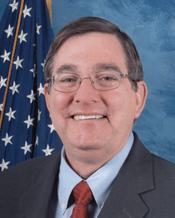0
Paul D. Wellstone Muscular Dystrophy Community Assistance, Research and Education Amendments of 2014
3/14/2024, 12:48 PM
Congressional Summary of HR 594
(This measure has not been amended since it was reported to the House on July 24, 2014. The summary of that version is repeated here.)
Paul D. Wellstone Muscular Dystrophy Community Assistance, Research and Education Amendments of 2014 - (Sec. 2) Amends the Public Health Service Act to revise the muscular dystrophy research program of the National Institutes of Health (NIH).
Expands the range of forms of muscular dystrophy included within the program. Requires the research conducted through Paul D. Wellstone Muscular Dystrophy Cooperative Research Centers to include cardiac and pulmonary function research. Requires the Director of NIH to ensure the sharing of data between such centers.
Revises the composition of the Muscular Dystrophy Coordinating Committee (MDCC) to include the Social Security Administration and the United States Administration for Community Living.
Requires the MDCC to meet at least two times per year. Requires the MDCC Action Plan to provide for: (1) health economic studies to demonstrate the cost-effectiveness of providing independent living resources and support to patients with various forms of muscular dystrophy, (2) studies to determine optimal clinical care interventions for adults with various forms of muscular dystrophy, and (3) the development of clinical interventions to improve the health of adults with various forms of muscular dystrophy.
(Sec. 3) Requires the Secretary of Health and Human Services (HHS), in carrying out epidemiological activities regarding Duchenne and other forms of muscular dystrophy, to ensure that data are representative of all affected populations and shared in a timely manner.
(Sec. 4) Amends the Muscular Dystrophy Community Assistance, Research, and Education Amendments of 2001 to authorize the Secretary to cooperate with professional organizations and the patient community in the development and issuance of care considerations, including acute care considerations, for pediatric and adult muscular dystrophy patients. Authorizes the Secretary, in developing and updating care considerations, to incorporate strategies specifically responding to the findings of the national transitions survey of minority, young adult, and adult communities of muscular dystrophy patients.




